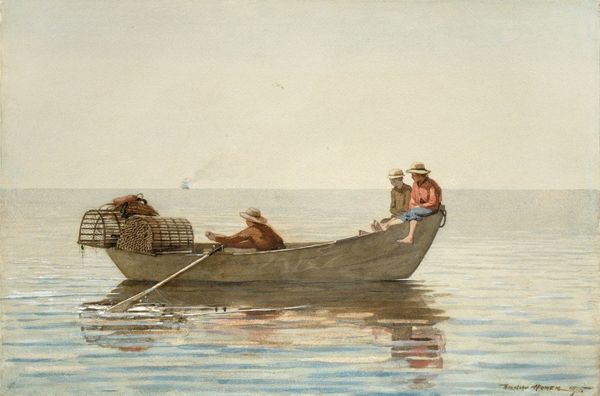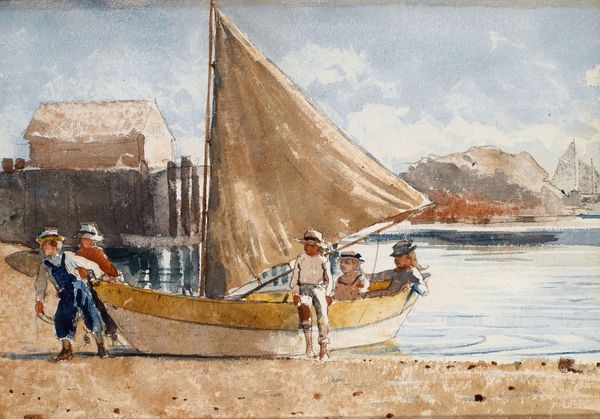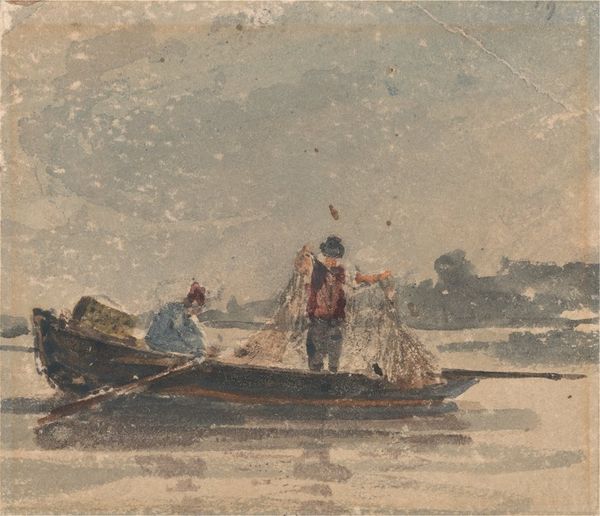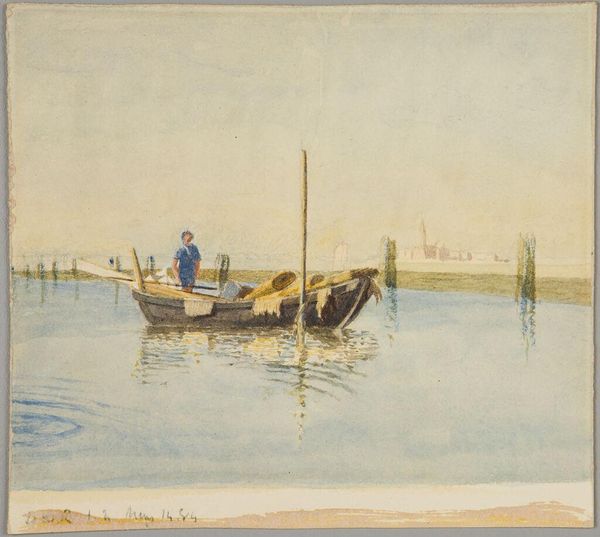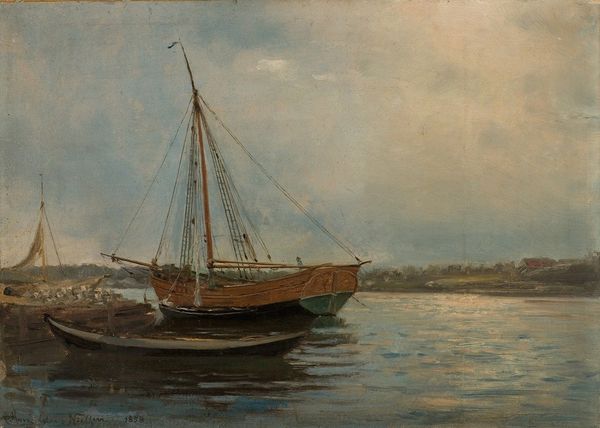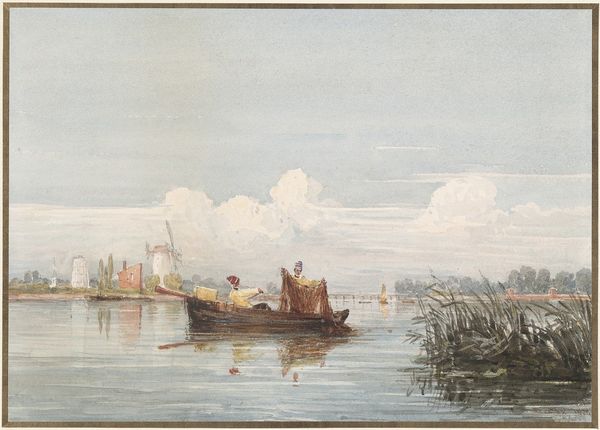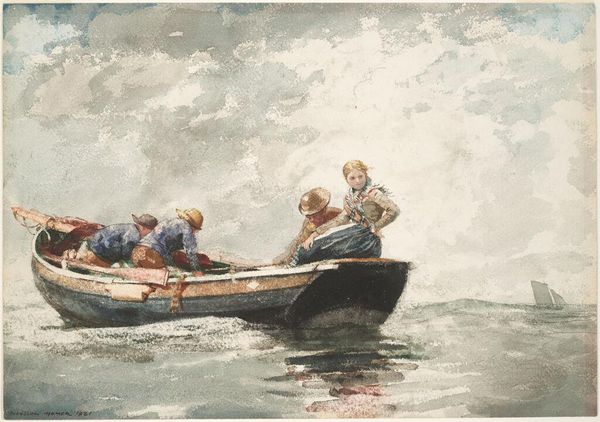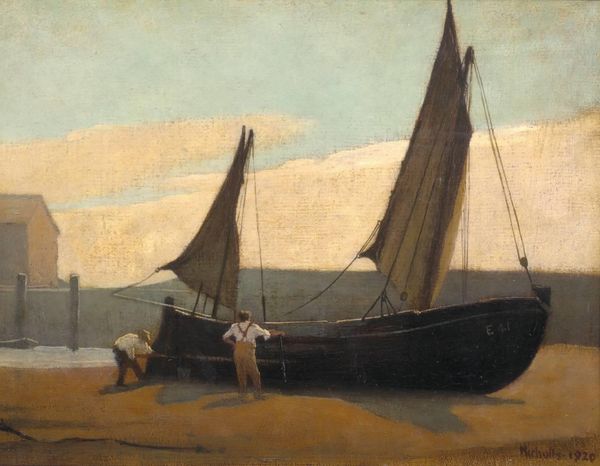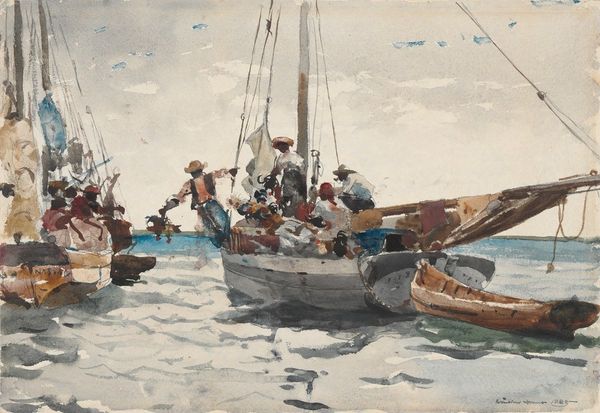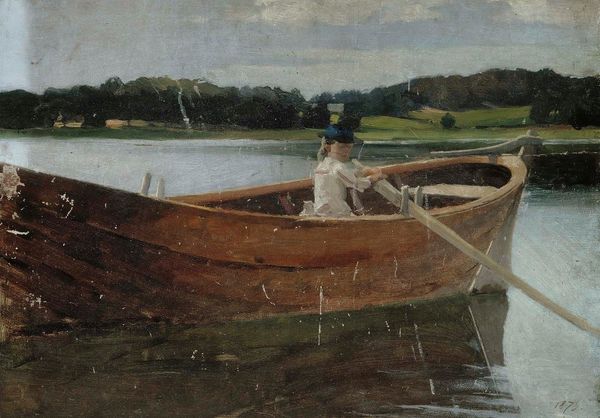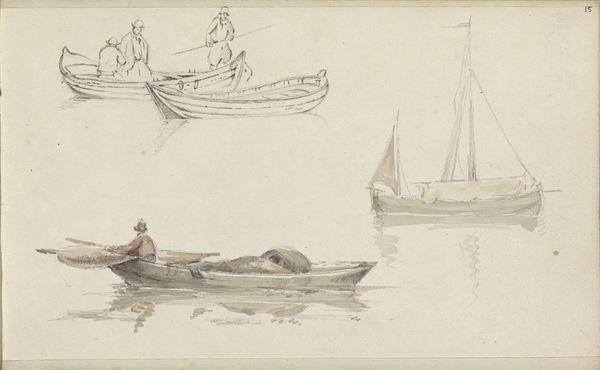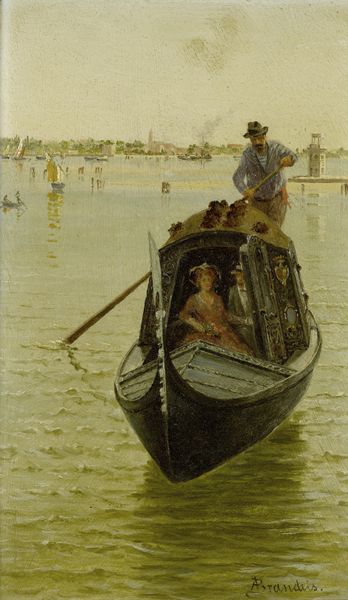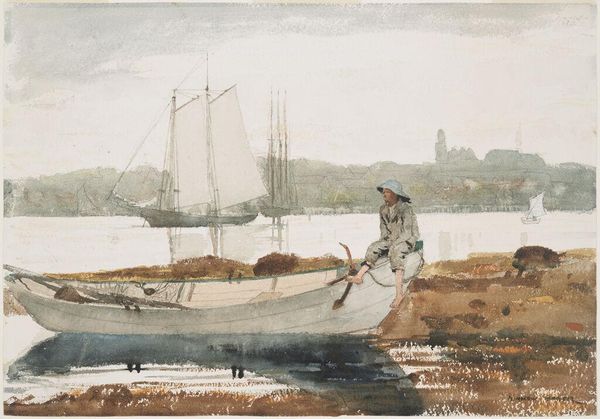
painting, watercolor
#
painting
#
impressionism
#
landscape
#
oil painting
#
watercolor
#
genre-painting
#
watercolor
#
realism
Copyright: Public Domain: Artvee
Curator: Here we have Winslow Homer's "Boys in a Dory," created in 1873. He worked with watercolor on paper for this piece. What are your initial thoughts? Editor: Well, there's a quiet melancholy to it, a feeling of fleeting childhood captured in these muted tones. The composition is interesting; the figures feel weighty and real against a softer background. I immediately hone in on the process -- I want to understand how watercolor is making this melancholy. Curator: It's true, Homer does masterfully evoke a specific emotional landscape, doesn't he? Note the dory itself. Symbolically, it can represent a vessel of passage, these boys on the cusp of adulthood, the straw hats indicating labor and play. Water is commonly thought to mean transition or the unconscious, yes? Editor: Indeed, the dory interests me. It looks worn, hand-hewn from substantial timber, built for work. Those lads were sitting on someone's capital--someone invested labor and material resources into its making. I wonder where Homer would've gotten the materials? The canvas, pigments, source for clean water... Curator: You're right to consider the tangible means, and don't forget the significance of depicting boys working—or perhaps pretending to work—in the dory. Their posture, one with feet dangling idly, indicates more play than work to me, a time when childhood labor was far more prevalent and present in daily life, even idealized. Editor: Perhaps. It’s intriguing how Homer, a man presumably from a more privileged background, renders their relationship to labor, even playfully, with the serious investment required by even a modest fishing operation sitting right there beneath them. Consider what a stable, seaworthy dory would have provided that household -- these lads weren't working for mere enjoyment, you see it everywhere. Curator: Certainly, Homer's skillful capturing of a specific moment, pregnant with social context. It makes one reflect on the shifting tides of American society in the late 19th century. Editor: Precisely, a potent piece.
Comments
No comments
Be the first to comment and join the conversation on the ultimate creative platform.
